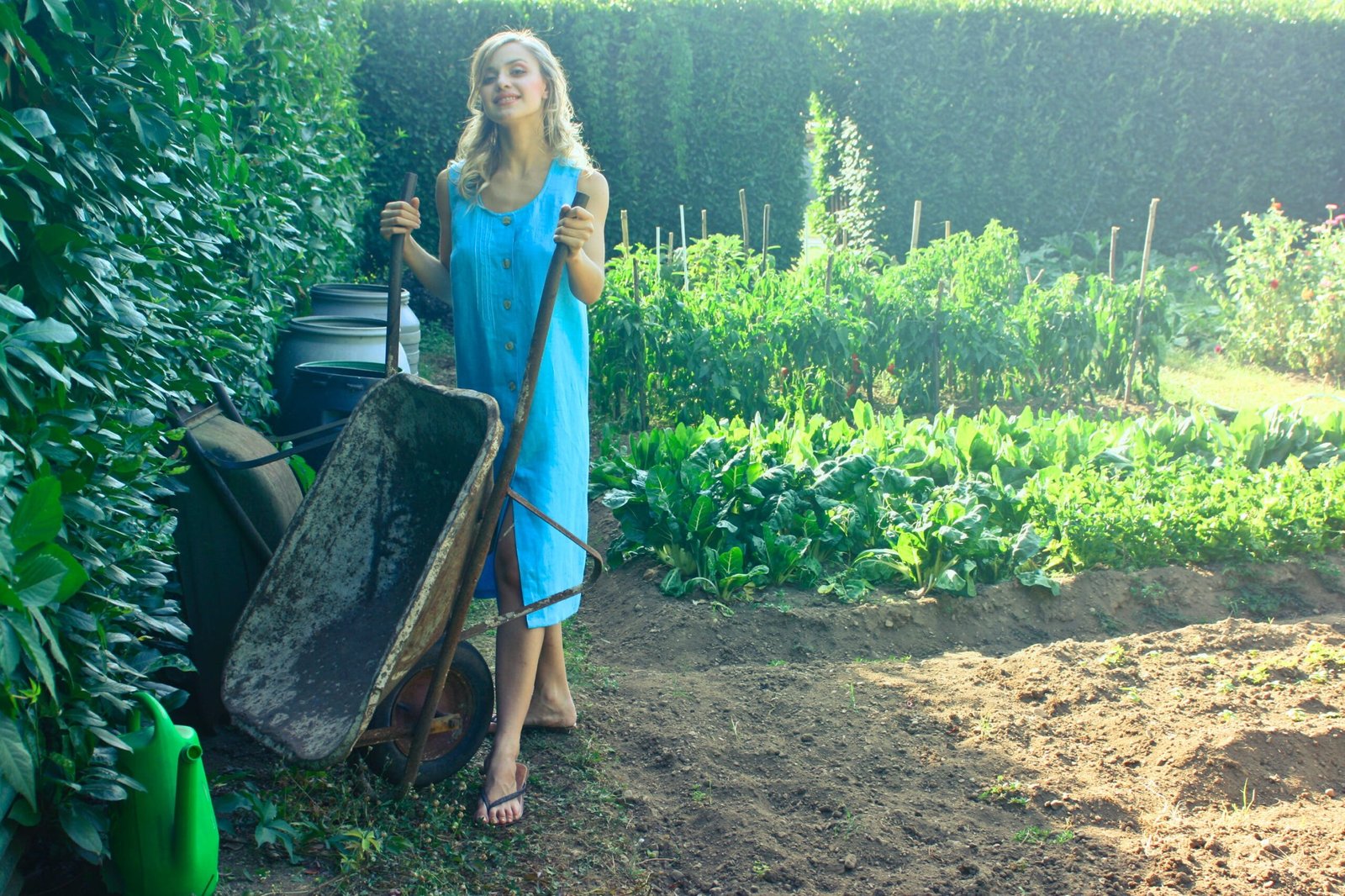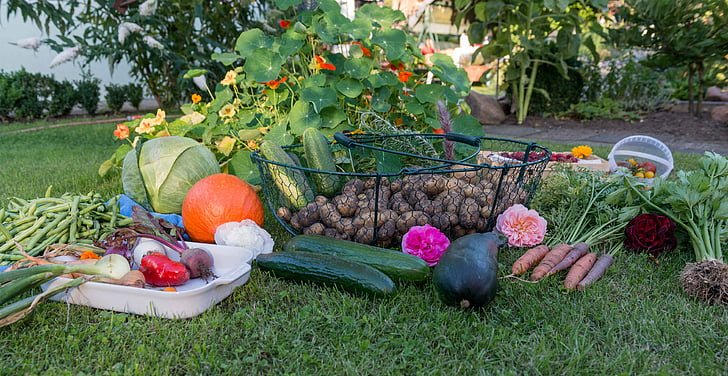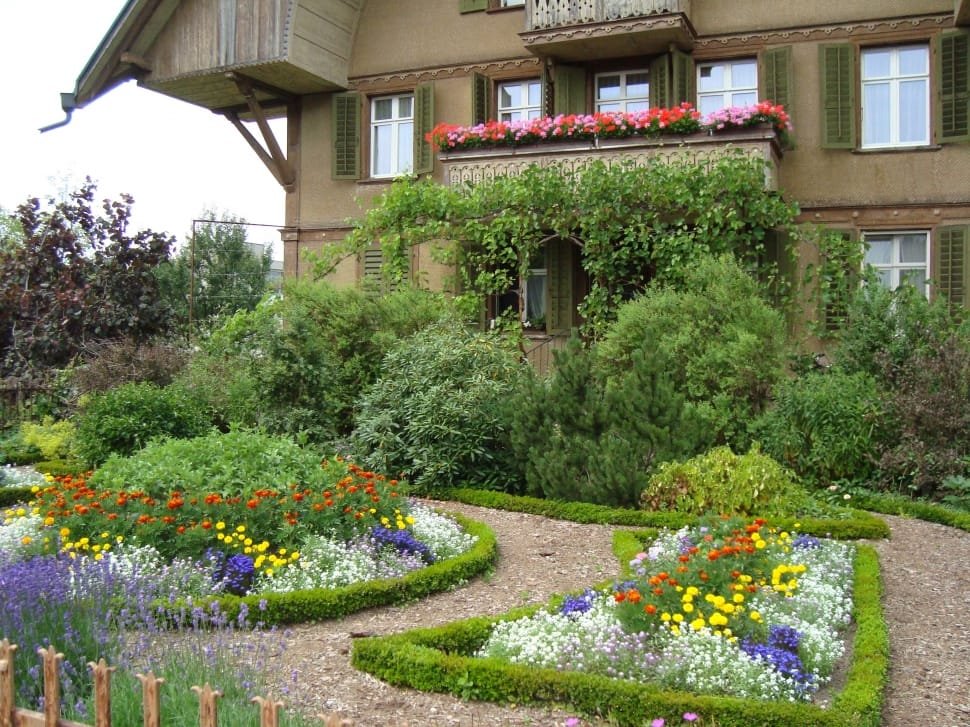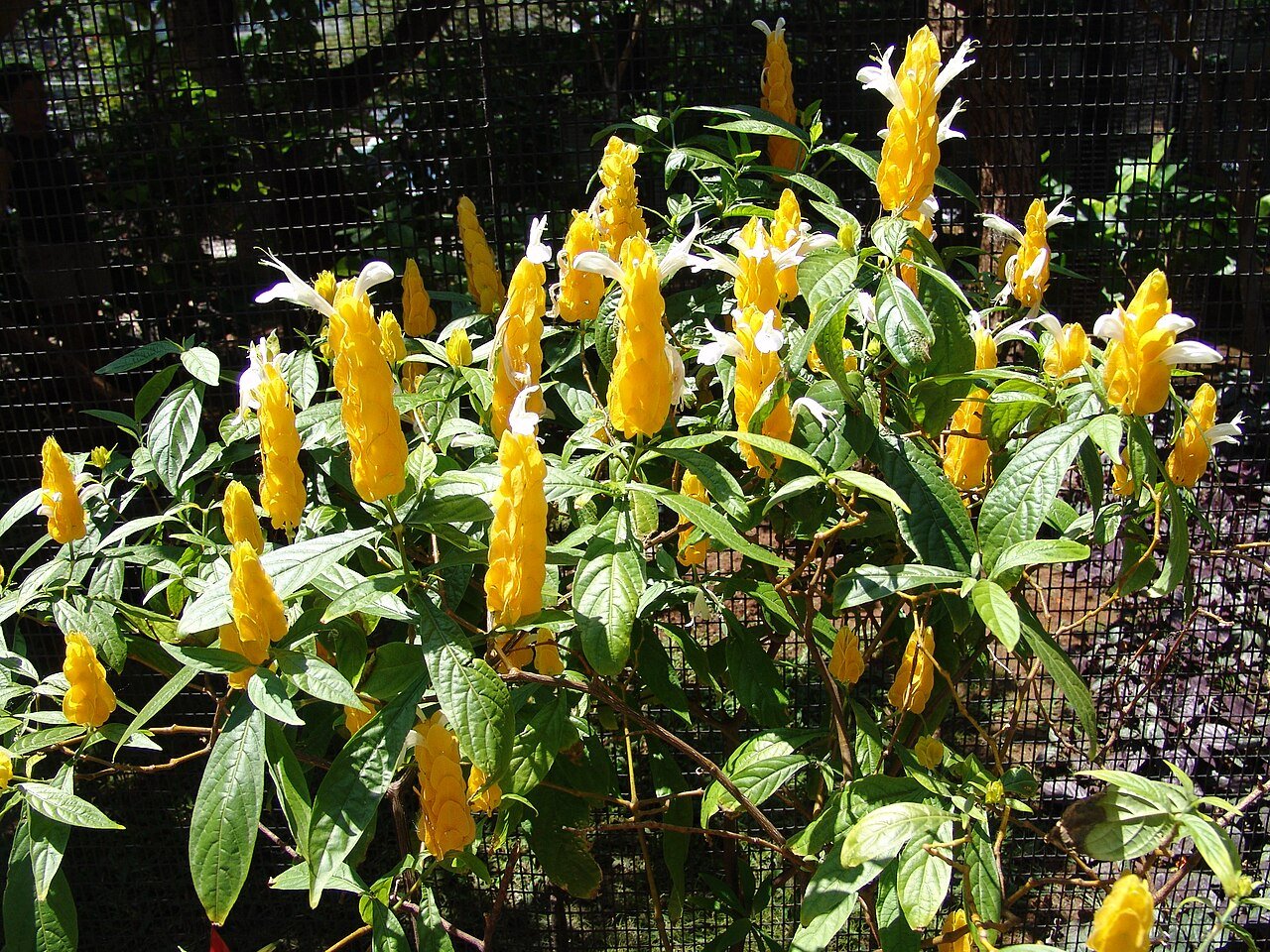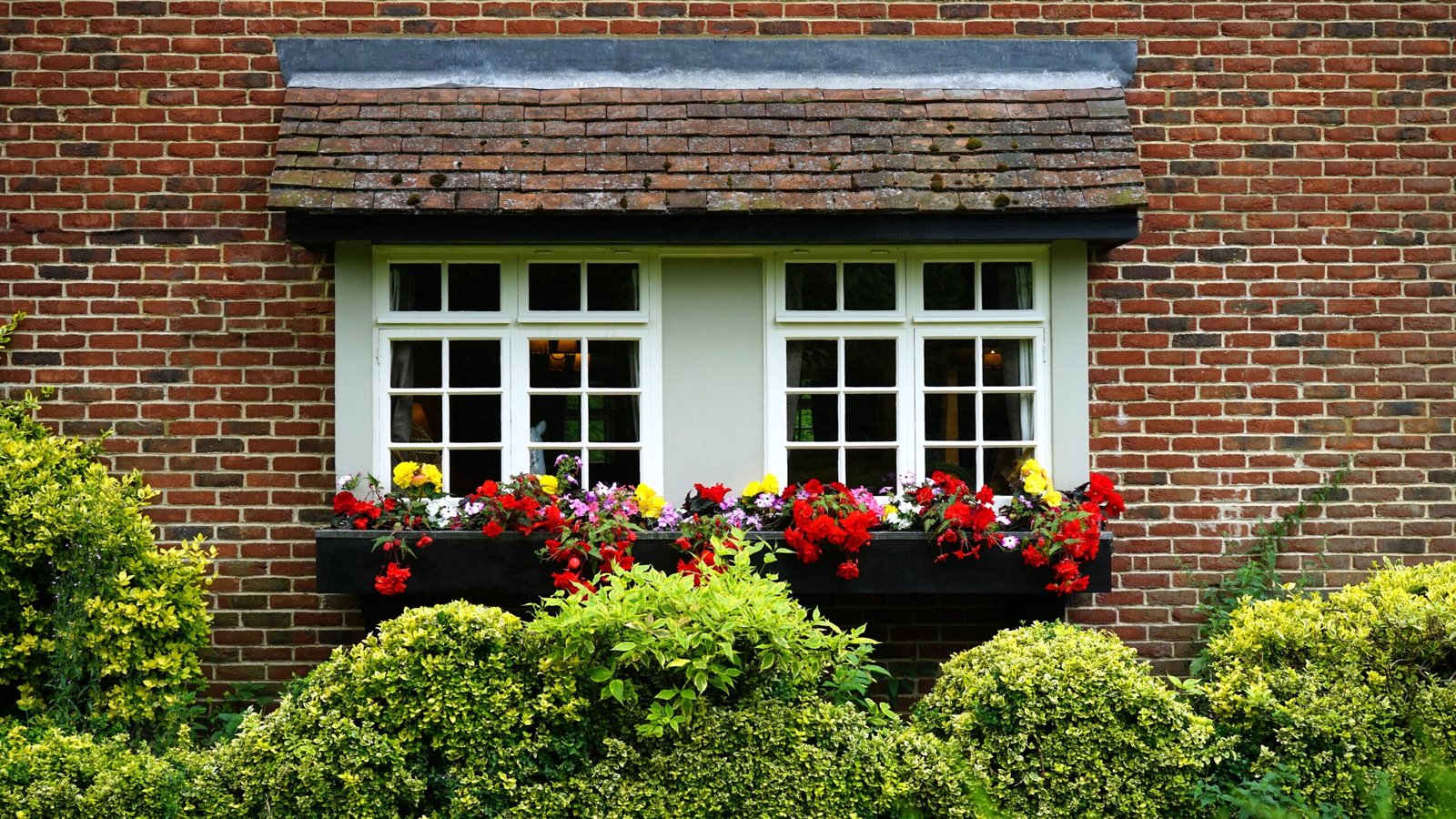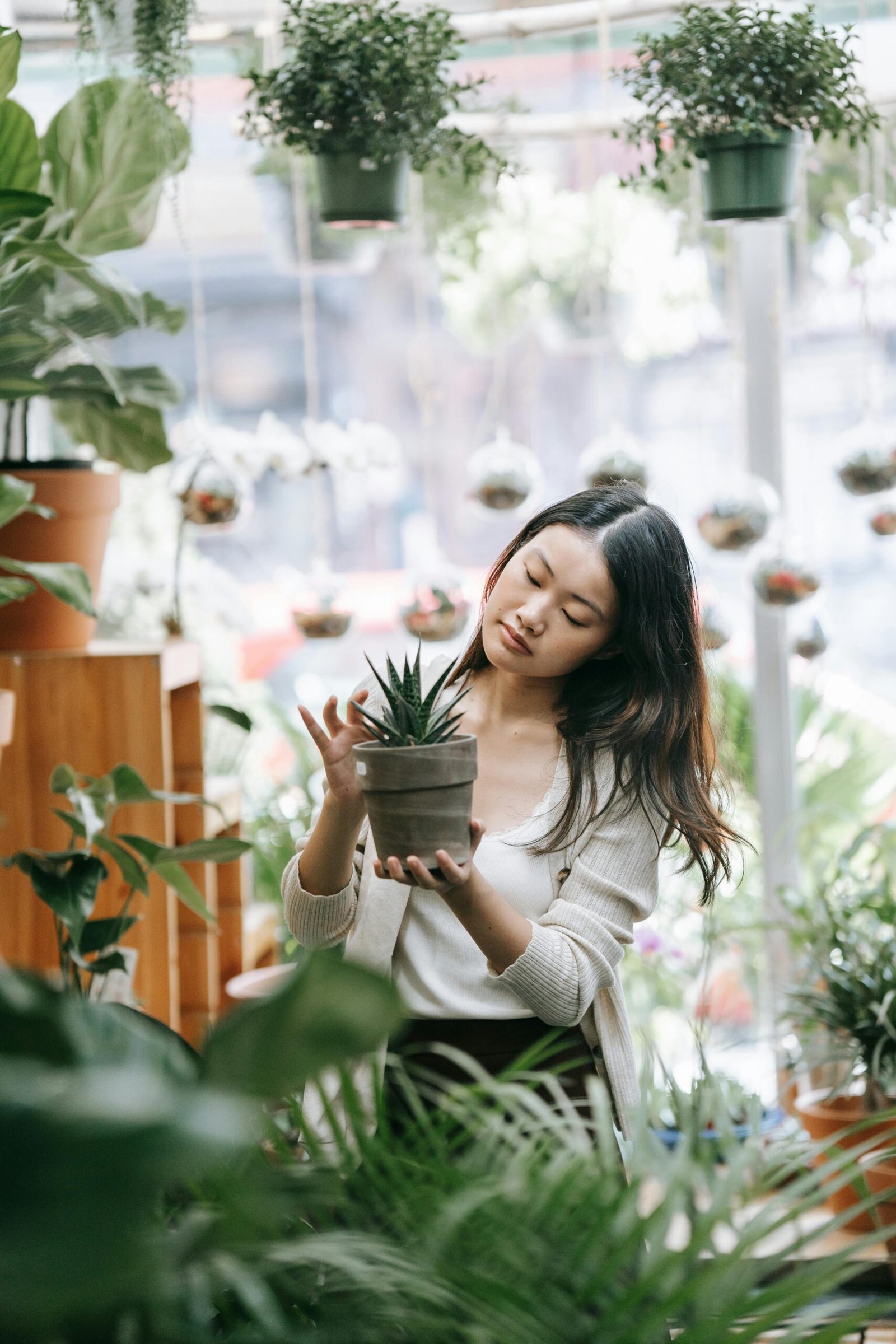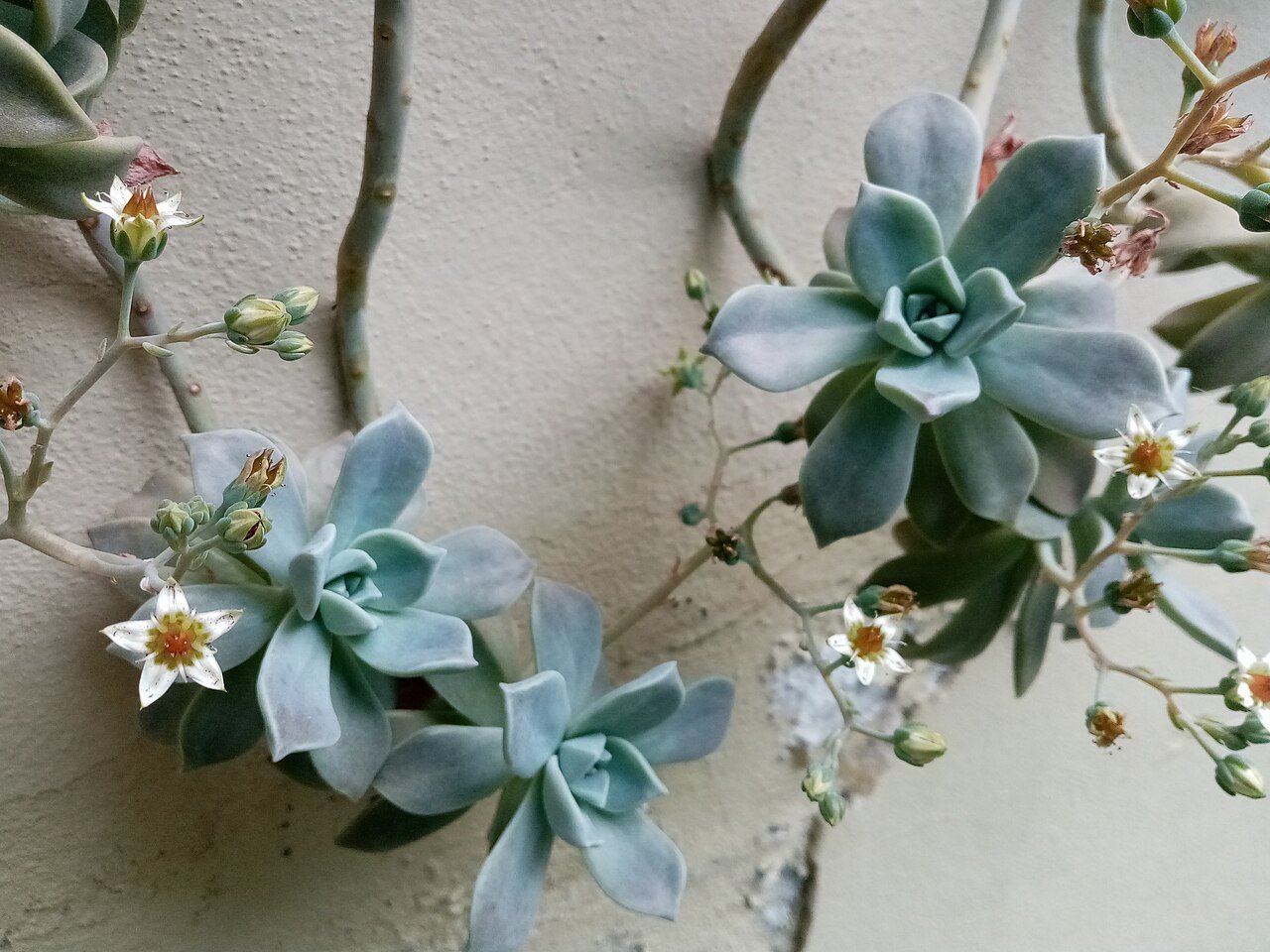In a world where convenience often takes precedence, the notion of tending to a vegetable garden might appear as a charming relic of the past. However, in an era where our lives are increasingly fast-paced and disconnected from the origins of our food, the allure of vegetable gardening has never been more compelling. In this extensive exploration, we embark on a journey deep into the realm of vegetable gardening to tackle the age-old question: Is it genuinely worthwhile?
Table of Contents
But before we delve into this inquiry, let’s address the fundamental queries::
Is it good to have a vegetable garden?
Having a vegetable garden can be a highly rewarding and beneficial endeavor. It provides access to fresh, nutritious produce, reduces grocery expenses, and contributes to environmental sustainability through organic and sustainable practices. Gardening also offers a unique connection to nature, fostering mental well-being and physical exercise.
Vegetable gardening serves as a valuable teaching tool, educating individuals, especially children, about food sources and sustainability. It encourages community engagement through sharing surplus produce and participating in community gardens. It also empowers individuals to be more self-sufficient by producing a portion of their food.
However, it’s important to acknowledge the commitment required for successful vegetable gardening, including the need for ongoing maintenance, pest management, and weather considerations. Ultimately, the decision to have a vegetable garden should align with personal preferences, available space, and the willingness to invest time and effort, with the understanding that the benefits often outweigh the challenges.
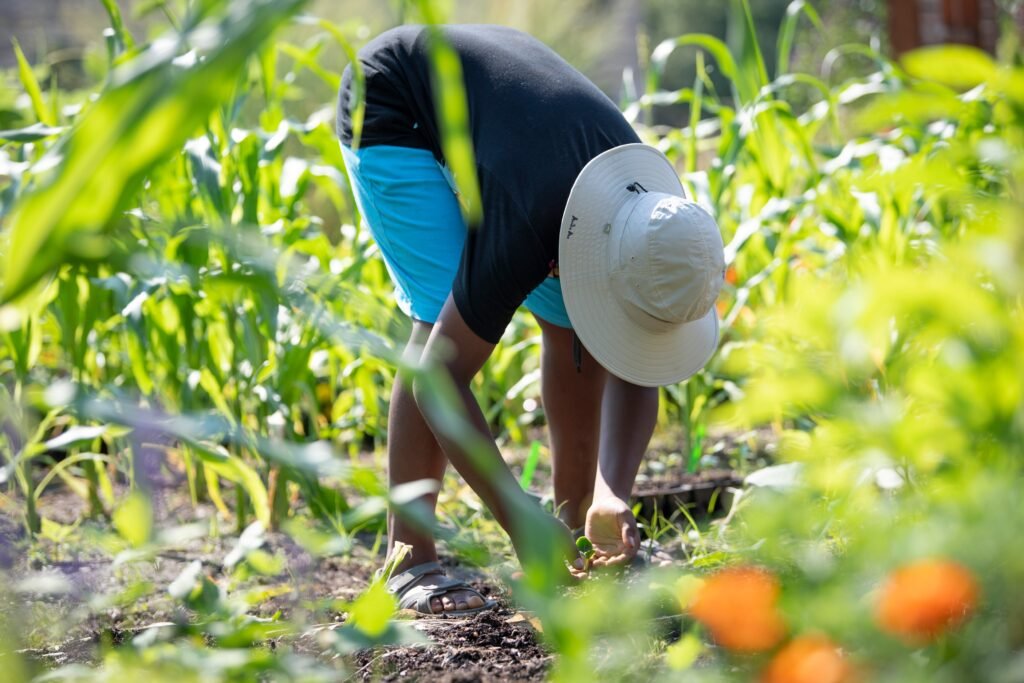
What is the hardest thing about gardening?
The hardest thing about gardening can vary from person to person and depends on several factors, including the type of gardening you’re doing, your level of experience, and the specific challenges in your region. However, some common challenges and difficulties often faced by gardeners include:
Pest and Disease Management
Dealing with pests and diseases that can damage or destroy your plants can be one of the most frustrating aspects of gardening. Finding effective, eco-friendly solutions can be a challenge.
Weather and Climate
Weather conditions, including extreme temperatures, droughts, floods, or unexpected frosts, can significantly impact the success of your garden. Adapting to these conditions can be challenging.
Time and Maintenance
Gardening requires ongoing time and effort. Weeding, watering, pruning, and other maintenance tasks can be labor-intensive, especially in larger gardens.
Plant Selection and Care
Choosing the right plants for your region and understanding their specific care requirements can be tricky, especially for beginners.
Soil Quality
Improving and maintaining the quality of your soil can be a long-term challenge. Soil testing and amendments are often necessary for healthy plant growth.
Space Limitations
Limited space can be a constraint for urban or small-space gardeners. Maximizing productivity in confined areas can be challenging.
Crop Rotation and Planning
Properly planning your garden layout and practicing crop rotation to prevent soil depletion can be complex and requires foresight.
Despite these challenges, many gardeners find the rewards of gardening—fresh produce, beautiful flowers, and a deep connection to nature—outweigh the difficulties. Gardening often becomes a fulfilling and enjoyable hobby that allows individuals to reap the benefits of their hard work and dedication.
From the sublime taste of homegrown produce to the therapeutic advantages of gardening, we are poised to unveil the concealed treasures that vegetable gardening has to offer. Concurrently, we will dispel common misconceptions and address the challenges that may have previously deterred you from this fulfilling pursuit. By the end of this voyage, you will have cultivated a newfound appreciation for the verdant gold that can be harvested right from your backyard.
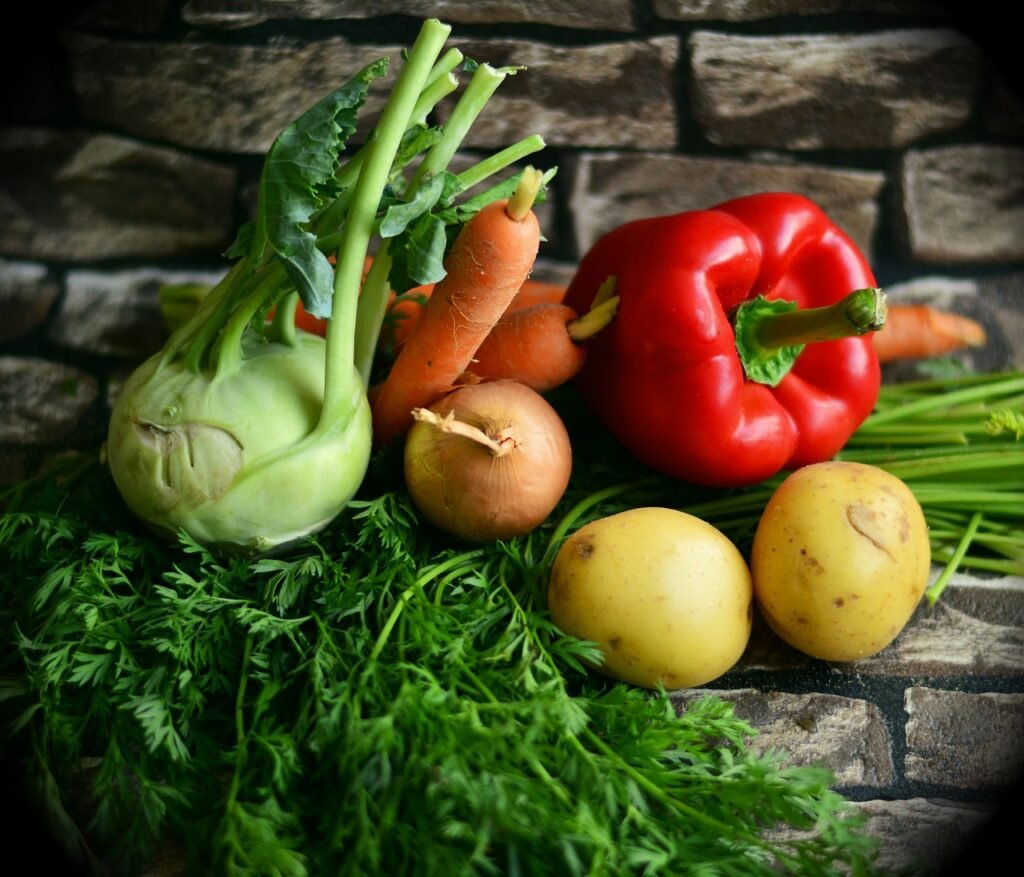
The Joy of Homegrown Produce
Exploring the realm of homegrown produce opens doors to an array of delightful experiences that set it apart from store-bought options. Here’s why the joy of homegrown produce is so exceptional:
Flavor Beyond Compare
Homegrown fruits and vegetables deliver flavors that surpass those found in grocery stores. The freshness and richness of taste are a testament to nurturing your crops from seed to table.
Nutritional Superiority
Growing your vegetables allows you to prioritize nutrition. You have control over the cultivation process, enabling you to enhance the nutrient content and reduce exposure to chemicals.
Reducing Food Miles
Homegrown produce significantly reduces food miles. Unlike store-bought items that may travel long distances, your garden is appropriately outside your door. This not only lowers carbon emissions but also ensures peak freshness upon harvest.
Sustainability and Environmental Impact
Home gardening supports a more sustainable food system. By reducing reliance on mass-produced industrial agriculture, you contribute to a healthier environment. Eco-friendly practices like composting and natural pest control further reduce your ecological footprint.
The Therapeutic Benefits of Gardening
Gardening is a holistic activity that nurtures well-being in several ways. For example,
Stress Relief and Mental Well-being
Gardening’s rhythmic and mindful nature reduces stress and promotes mental calm. It immerses individuals in nature’s beauty, providing a serene escape from daily pressures.
Physical Exercise
Gardening is a satisfying form of exercise that enhances strength and flexibility. It releases endorphins, contributing to a sense of well-being.
Connection to Nature
Gardening deepens our bond with the natural world, fostering stewardship and eco-conscious practices. It reminds us of our place within the broader ecosystem.
Teaching Moments for All Ages
Gardens are rich learning environments. Children discover the wonders of growth, while adults expand their horticultural knowledge. Gardening creates opportunities for intergenerational sharing and lifelong learning.

The Economic Aspect: Cost vs. Savings
When delving into the world of vegetable gardening, it’s essential to consider the economic aspect. While there may be initial investments and costs involved, gardening can ultimately lead to significant savings and a positive return on investment (ROI). Let’s explore this economic dimension in more detail:
Initial Investment
Starting a vegetable garden requires some initial investments, including
- Seeds or Seedlings
- Garden Tools
- Soil and Amendments
- Containers or Garden Beds.
- Fertilizers and Pest Control
Calculating Savings
While there are initial costs, vegetable gardening can lead to substantial savings over time. Here’s how to calculate and appreciate these savings:
- Reduced Grocery Bills
- Eliminating Transportation Costs
- Minimized Packaging Waste
- Access to Expensive Produce
ROI on Gardening
Calculating the return on investment (ROI) for gardening involves comparing the cost of your initial investment to the value of the produce you harvest. To determine your return on investment:
- Keep Track of Expenses
- Estimate Harvest Value
- Calculate return on investment(ROI)
Overcoming Common Challenges
Space Constraints
Limited space need not deter your gardening dreams. Embrace container gardening, vertical gardens, or window boxes to maximize every inch of available space. Compact and dwarf varieties of plants can also thrive in small gardens.
Lack of Gardening Experience
Everyone starts somewhere. Begin with easy-to-grow plants, and gradually expand your gardening knowledge. Utilize online resources, join gardening communities, and learn from seasoned gardeners.
Time Commitment
Efficient garden planning can help manage time. Opt for low-maintenance plants, automate watering systems, and create a gardening schedule that suits your availability.
Dealing with Pests and Diseases
Implement preventive measures like companion planting, organic pest control methods, and regular inspection. Early intervention can mitigate damage.
Weather and Climate Considerations
Choose plants suited to your region’s climate. Implement protective measures like row covers or shade cloth to shield plants from extreme weather conditions.
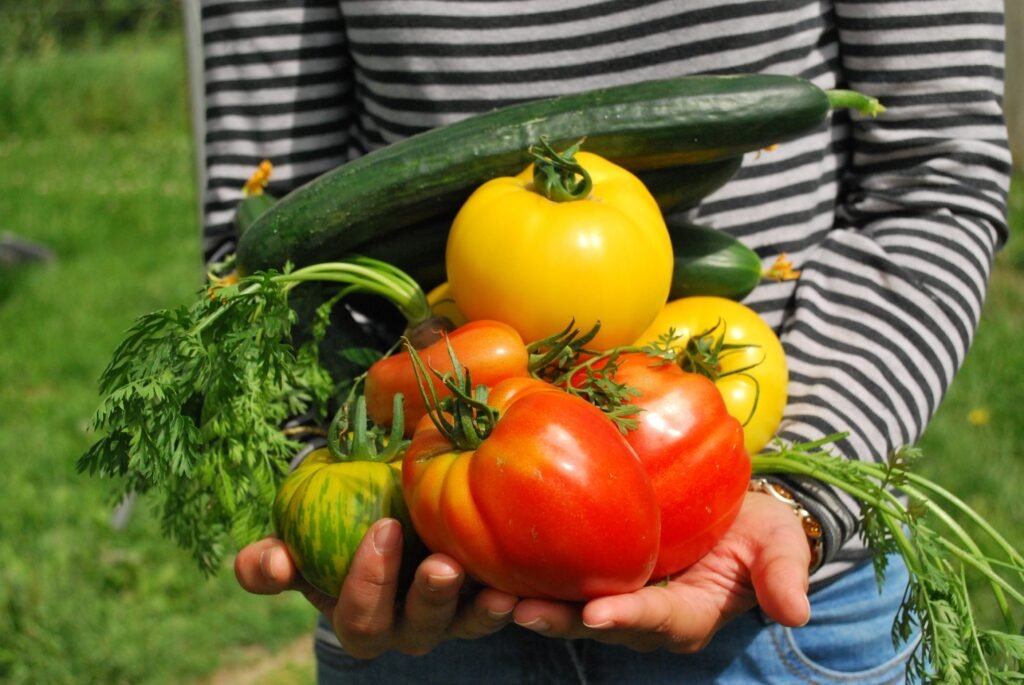
The Art of Starting Small
Container Gardening
Perfect for those with limited space, container gardening lets you grow a variety of plants in pots, hanging baskets, or even repurposed containers. It’s versatile, allowing you to cultivate herbs, flowers, or small vegetables on balconies, patios, or any available surface.
Vertical Gardens
Make the most of vertical space with vertical gardens. These living walls feature pockets or shelves where you can plant a vertical oasis of greenery. They not only save space but also add a stunning visual element to your surroundings.
Windowsill Herbs
Even if you lack outdoor space, a sunny windowsill can serve as a mini herb garden. Grow aromatic herbs like basil, rosemary, and mint in pots, providing fresh flavors for your culinary creations.
Apartment Gardening
Apartment dwellers can embrace gardening too. Utilize small spaces efficiently with compact planters, hanging gardens, or even a community garden plot if available. Apartment gardening allows you to enjoy the pleasures of cultivating your own plants amidst an urban setting.
Selecting the Right Vegetables
Seasonal Planting
Understanding which vegetables thrive in each season allows for continuous harvests and optimal garden productivity.
Space and Climate Considerations
Consider your garden’s available space and local climate when selecting vegetables. Some varieties adapt better to limited spaces or specific climate conditions.
Gardening Tools and Essentials
To nurture your garden effectively, you’ll need essential tools:
Basic Kit
Spade, rake, pruners, watering can, gloves, and weeder.
Specialty Tools
Soil pH tester, soil thermometer, hand trowels, and more as your expertise grows.
Infrastructure
Drip irrigation, trellises, raised beds, and other elements to support your garden’s health and productivity.
Harvesting and Preserving Your Bounty
Harvesting at Peak Ripeness
Timing is essential when harvesting to ensure the best flavor and nutrition. Picking produce at its peak ripeness is key, avoiding underdeveloped or overripe items.
Storing and Preserving
Proper storage is crucial to extend the shelf life of your harvest. This includes using suitable containers, maintaining the right temperature and humidity, and keeping different items separated to prevent spoilage.
Canning, Freezing, and Drying
Explore various preservation methods to enjoy your garden’s produce year-round. Canning seals items in jars for long-lasting, shelf-stable options. Freezing maintains freshness, while drying creates compact, lightweight snacks or ingredients, allowing you to savor your garden’s flavors beyond the growing season.
Community and Sharing
Community Gardens
Community gardens are vibrant, living testaments to the power of togetherness.
These communal spaces bring people together to cultivate their plots, fostering togetherness and knowledge exchange.
Sharing with Neighbors
In the world of community gardens, sharing isn’t just a virtue; it’s a way of life. Surplus produce often leads to neighborly goodwill, strengthening community bonds while preventing waste. The exchange of homegrown treasures between neighbors is not just a practicality; it’s an expression of generosity that nurtures the bonds of friendship and cooperation.
Educational Initiatives
Community gardens are more than just places to grow plants; they are valuable educational hubs. They offer workshops and experiences that empower individuals and educate the broader community about gardening, sustainability, and nutrition. Through these initiatives, community gardens become epicenters of learning, inspiring the next generation of gardeners and advocates for a healthier, greener world.
Gardening for Future Generations
Teaching Children to Garden
Introducing kids to gardening nurtures their love for nature, imparts life skills, and fosters responsibility. These early experiences often create lifelong garden enthusiasts.
Passing Down Wisdom
Gardening traditions and knowledge are passed from elders to youth, preserving cultural and horticultural heritage while enriching the gardening experience.
Preserving Biodiversity
Gardens contributes to biodiversity conservation. Teaching future generations about this importance instills responsibility for environmental protection, ensuring they continue to nurture the natural world.
As we journeyed through the verdant world of vegetable gardening, we discovered that the rewards far outweigh the initial investment of time and effort. From the unparalleled taste of homegrown produce to the therapeutic benefits, economic savings, and sustainable practices, vegetable gardening offers a bountiful array of “green gold.”
So, is vegetable gardening worth the trouble? Undoubtedly. It’s an investment in your well-being, the environment, and the future. As you nurture your garden, you’re also nurturing your connection to nature, your community, and generations to come. So, roll up your sleeves, pick up a trowel, and let the fertile soil of your garden become the canvas for a rich and rewarding journey. It’s a journey well worth every moment of trouble.




